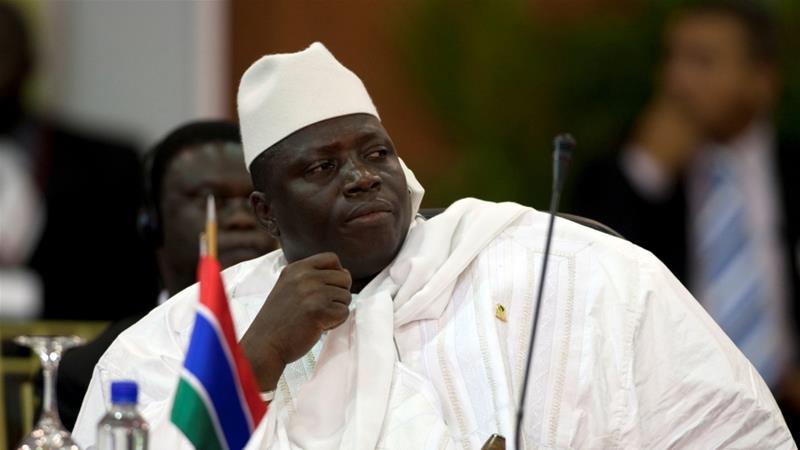Gambian President Yahya Jammeh has said that he rejects the outcome of last week’s election that he lost to opposition leader Adama Barrow, only days after he conceded defeat to him in a public address.
The fresh announcement he made on state television on Friday throws the future of the West African country into doubt after the unexpected election results ended Jammeh’s 22-year rule.
Jammeh had conceded defeat on state TV last week, prompting wild celebrations over the ending of a government that human-rights groups accused of detaining, torturing and killing opponents.
“After a thorough investigation, I have decided to reject the outcome of the recent election. I lament serious and unacceptable abnormalities which have reportedly transpired during the electoral process,” Jammeh said, changing his position on the election results.
“I recommend fresh and transparent elections which will be officiated by a god-fearing and independent electoral commission,” he said.
Jammeh’s announcement presents an unexpected and severe challenge to the incoming Barrow administration, which was already grappling with how to take the reins of power and deal with the army that for two decades was loyal to the president.
Latest official figures gave Barrow 43.29 percent of the votes in the presidential election, while Jammeh took 39.64 percent. The turnout was at 59 percent.
Opposition spokeswoman Isatou Touray criticised on social media a “violation of democracy” and called for people to “remain calm, lucid, vigilant and not retreat.”
The US state department said in a statement that Jammeh’s rejection of the results was an egregious attempt to undermine a credible election and remain illegitimately in power.
Senegal’s Foreign Minister, Mankeur Ndiaye, called for an emergency meeting of the UN Security Council and “solemnly” warned Jammeh not to harm Senegal’s interests or its citizens in Gambia.
Senegal, which has Gambia’s only land border and entirely surrounds the small riverside country, is a non-permanent member of the Security Council. Its army intervened in Gambia in 1981 during a coup.

